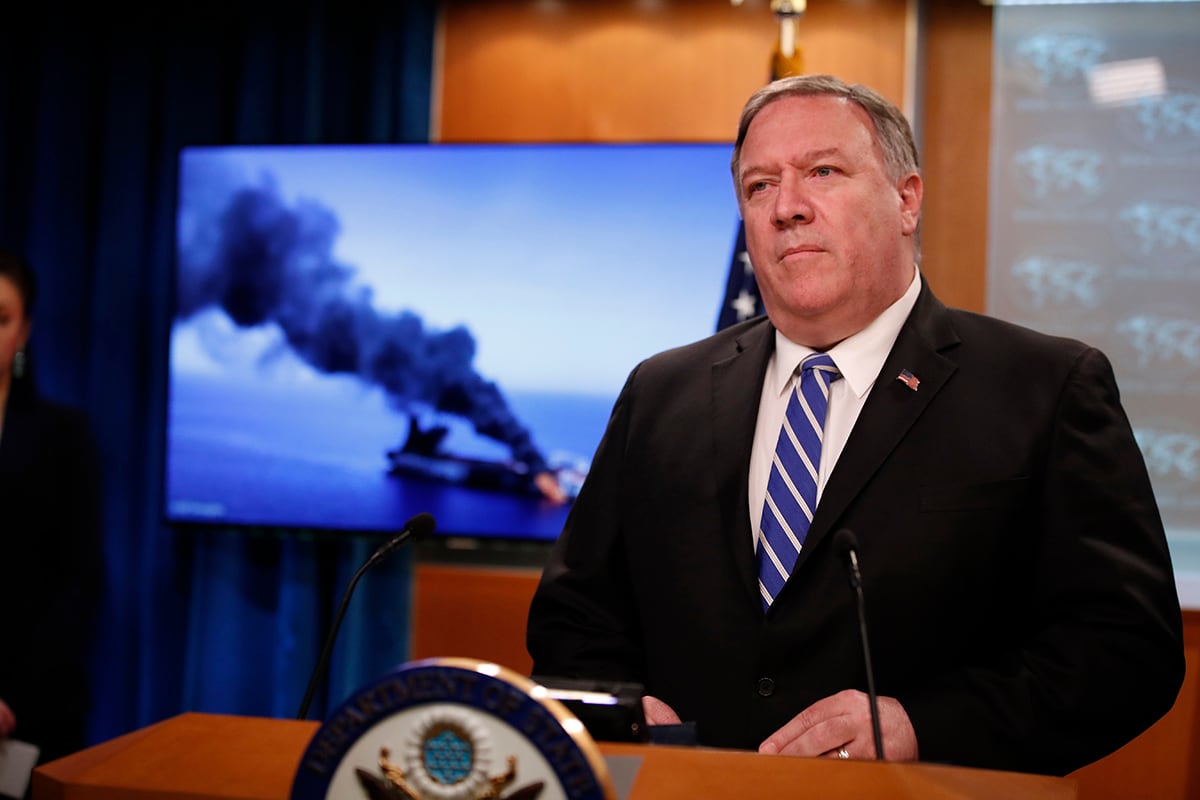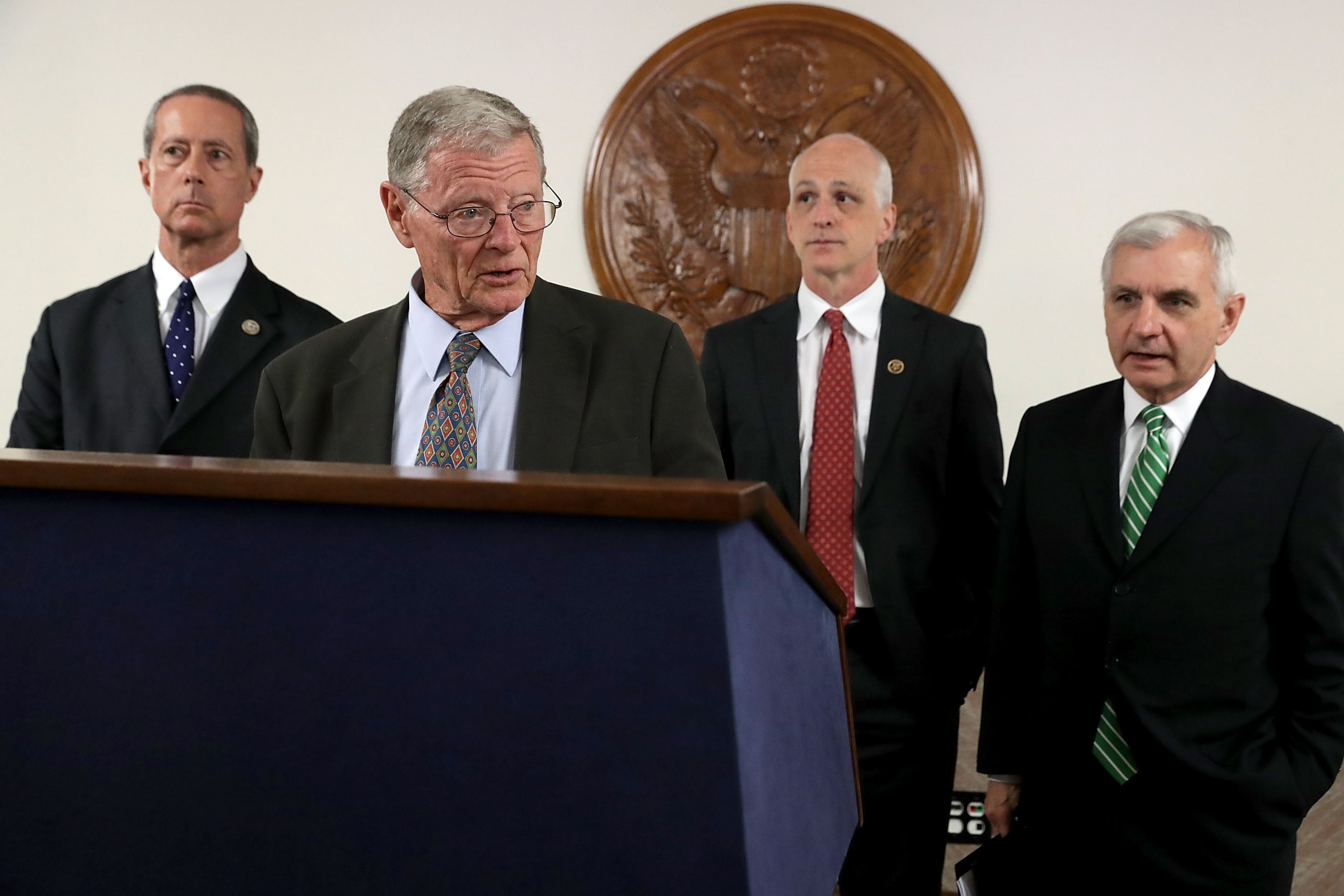WASHINGTON ― When Congress returns to work Monday, authorizers will aim for quick passage of the National Defense Authorization Act, even though a host of differences in the separate House and Senate versions of the bill have yet to be formally resolved.
While lawmakers have been on a five-week summer recess, staff members of each chamber’s Armed Services committees were working to resolve noncontroversial issues on the massive, annual defense policy measure, clearing the way for conferees to focus on more problematic policy differences when they return.
Even with complicated work ahead and only 13 working days in September, aides in both chambers confirmed that leaders hope to draft a compromise conference report by Sept. 19, finalize signatures to the bill by Sept. 23 and set floor votes in each chamber before the end of the month.
If successful, Congress would keep alive the legislation’s 58-year streak of successful passage into law ahead of schedule. Last year the measure was finalized in August, but typically the final legislation isn’t finished until November or December.
House Armed Services Committee Chairman Adam Smith, D-Wash., pitched the bill to fellow House Democrats as a way to coalesce around a national security position and aim for a bipartisan bill ― only to have House Republicans shun the bill en masse for the final 220-197 vote.
Senate Armed Services Committee Chairman Jim Inhofe, R-Okla., said before the summer recess that he believes many of the House bill’s divisive provisions will have to come out in conference so that the bill can pass in the GOP-controlled Senate. His bill passed with a bipartisan 86-8.
Here are the biggest fights to be resolved in the days ahead:
Trump’s border wall
The White House’s recent shift of $3.6 billion in military construction funds to pay for President Donald Trump’s southern border wall project could end up being the largest complicating factor in negotiations ahead.
The House bill has language barring such funding transfers in the future, and it does not include money to cover the projects that lost funding in the shift. The Senate version has money in the draft and does not include any language restricting funding transfers.
Given the recent outrage from congressional Democrats over the administration’s decision, finding a common path ahead on the issue will prove difficult. Smith last week blasted the money move as “stealing from military construction projects and upending years of planning and coordination in hopes that Congress would clean up the mess.” Inhofe said he supports the decision.
RELATED

The nuclear arsenal
Among a range of differences on nuclear issues, the House bill bars funding for the deployment of a low-yield variant of a submarine-launched warhead called the W76-2. It would cut the entire $19.6 million Defense Department request and $10 million Energy Department request for the program.
Republicans insist prohibiting these weapons puts the U.S. at a disadvantage against Russia. Smith, a skeptic of nuclear spending, is among the critics who say the concept of a tactical nuclear weapon is too dangerous for the U.S. to indulge.
House Strategic Forces Subcommittee Chairman Jim Cooper, D-Tenn., said Republicans have blown the issue out of proportion. “If you look at the W76-2, it’s such a tiny, tiny, tiny fraction [of an] overall nuclear force, it’s not even a rounding error. So to make this the be-all and end-all of our nuclear arsenal is misleading,” Cooper said during the full committee markup in June.
RELATED

War authorizations
The House bill contains separate provisions that bar unauthorized use of force against Iran, repeal the 2002 resolution authorizing the Iraq War — which has since been stretched to other conflicts — and bars support to the Saudi-led coalition’s military operations against the Houthi rebels in Yemen.
Tension between the U.S. and Iran has fueled fear among some congressional Democrats that the president will cross the line from tough rhetoric and into war, while Republicans argue the president needs latitude to pressure Iran into a broader nuclear deal.
The Senate’s draft does not address those authorization issues, leaving Democrats and Republicans with a substantial divide to bridge in the final legislation.
RELATED

The military ‘widow’s tax’
The House authorization bill draft includes eliminating an offset problem with two separate military survivor payouts that can cost some families up to $15,000 a year. But the Senate has resisted the plan, noting the $5.7 billion price tag for the government over the next decade.
The first payout, the Dependency and Indemnity Compensation program, awards about $15,000 a year to survivors of veterans or troops who die of service-related causes. There is no cost to troops or families to enroll.
The other, the Survivor Benefit Plan, gives families of military retirees who enroll up to 55 percent of their loved ones’ retirement pay after the veteran dies. The life insurance-type payouts are subsidized by the Defense Department, but require enrollees to pay as part of their retirement benefit to be eligible.
Individuals who qualify for either SBP money or DIC benefits receive full payouts from the respective programs. But family members who qualify for both are subject to an offset, where for every dollar paid out in DIC, their payouts under SBP are reduced by one dollar.
Military advocates have made the issue their top focus in recent months, calling it an issue of fairness and honoring troops’ sacrifices. Inhofe said publicly he is sympathetic to the idea but has had little success getting fiscal conservatives to agree to the move.
Just getting the issue into final conference negotiations represents a victory of sorts for those outside military support groups, since the issue often gets bounced from the draft text before the negotiations begin. Now they hope they can turn that legislative momentum into a final fix.
RELATED

Guantanamo prison rules
House Democrats, many of whom have long objected to continuing operations at the detention facility at Naval Station Guantanamo Bay in Cuba, added language to their draft bill that bans new detainees to the facility. The bill would also remove restrictions on transferring prisoners from the facility to mainland U.S. prisons and requires a plan to deal with ongoing legal questions surrounding the inmates there.
Republicans in both chambers argue the base remains a critical tool in the fight against terrorism, and inserted those restrictions in recent years to block President Barack Obama from attempting to shut down the detention center.
Now, with Congress divided, the question becomes which side is more resolute in its stance on the future of the base, and whether the impasse will undermine the entire policy bill.
Joe Gould was the senior Pentagon reporter for Defense News, covering the intersection of national security policy, politics and the defense industry. He had previously served as Congress reporter.
Leo covers Congress, Veterans Affairs and the White House for Military Times. He has covered Washington, D.C. since 2004, focusing on military personnel and veterans policies. His work has earned numerous honors, including a 2009 Polk award, a 2010 National Headliner Award, the IAVA Leadership in Journalism award and the VFW News Media award.





